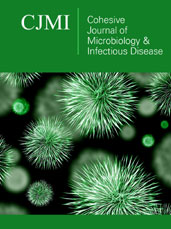Candida Parapsilosis Sensu Stricto Can Act as a Pathobiont in Conditions of Oral Dysbiosis by Rodríguez L* in Cohesive Journal of Microbiology & Infectious Disease_ Journal of Microbiology

Abstract
Recent publications have
reported high prevalence of Candida parapsilosis Sensu Stricto in oral cavity
niches. Our research group performed a pilot study in 2017 which showed that of
the psilosis complex, Candida parapsilosis Sensu Stricto is the species most
frequently isolated from oral cavity niches. Under inflammatory conditions, the
probability of recovering it is almost four times higher, and it displays
higher biofilm-forming capacity in-vitro, differing significantly from isolates
of the same species obtained in conditions of eubiosis. This led us to
hypothesize that an oral environment in dysbiosis overregulates virulent genes,
promoting a more pathogenic phenotype. Accordingly, we decided to re-evaluate
the in-vitro biofilm formation assay using a larger sample, under two
nutritional conditions, using colorimetric methods for quantification. In
addition, the results obtained were validated by imaging techniques. For both
clinical conditions (eubiosis and dysbiosis), high biofilm forming phenotype
predominated with both reading methods, and for both nutritional conditions
tested. XTT showed significant difference between absorbance values for
isolates from buccal dysbiosis and eubiosis (P=0.0025). Candida parapsilosis
Sensu Stricto cells that colonize oral cavity niches are basically strong
biofilm formers, regardless of in vitro growing conditions. However, the oral cavity
in dysbiosis probably promotes virulence
in this species due to inheritable epigenetic modifications
https://crimsonpublishers.com/cjmi/fulltext/CJMI.000562.php
Crimson
Publishers: https://crimsonpublishers.com/
For more
articles in Journal of Microbiology,
Please click on below link:
https://crimsonpublishers.com/cjmi/



No comments:
Post a Comment